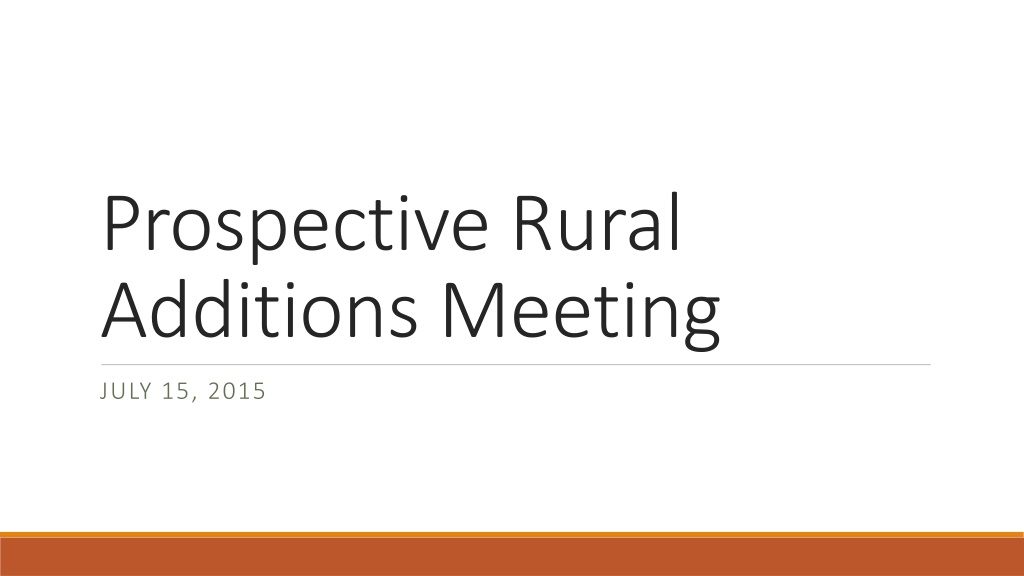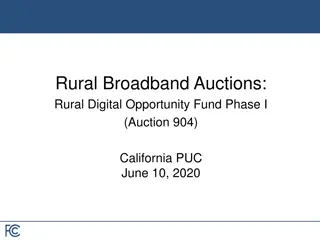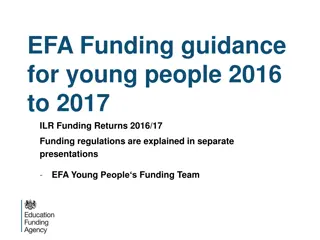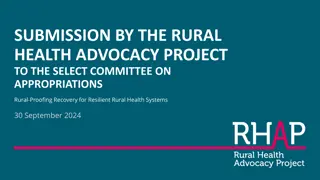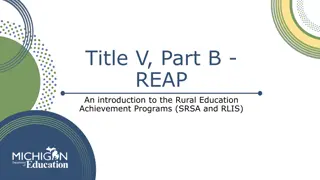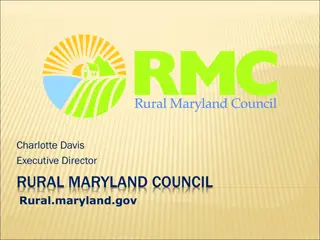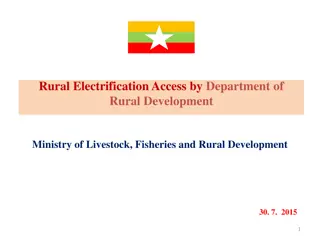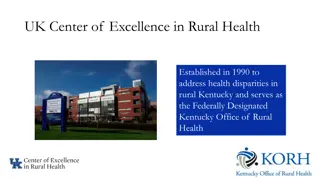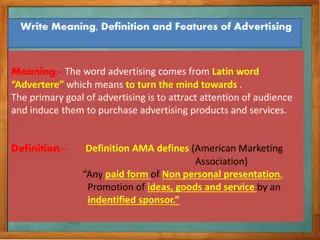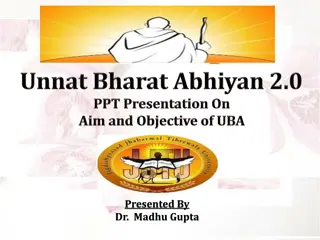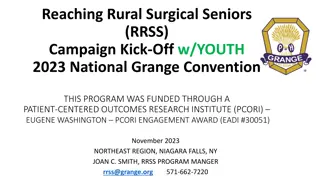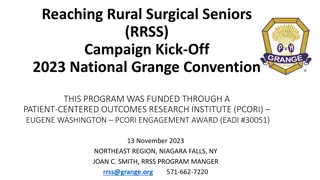Rural Additions Funding and Process Overview
The Giles County Rural Addition Program allocates funds for secondary road construction, with opportunities for additional funding from landowners and revenue sharing. The process involves landowner agreements, cost evaluations by the Board of Road Viewers, and approval from the Virginia Department of Transportation for project commencement. Funding projections and detailed steps for project execution are outlined, emphasizing community involvement and government coordination.
- Rural Additions
- Funding Opportunities
- Road Construction
- Landowner Agreements
- Virginia Department of Transportation
Download Presentation

Please find below an Image/Link to download the presentation.
The content on the website is provided AS IS for your information and personal use only. It may not be sold, licensed, or shared on other websites without obtaining consent from the author. Download presentation by click this link. If you encounter any issues during the download, it is possible that the publisher has removed the file from their server.
E N D
Presentation Transcript
Prospective Rural Additions Meeting JULY 15, 2015
Rural Addition Program VA Code33.2 33.2- -335 335 "Rural addition funds" means those funds reserved from the county's annual allocation of secondary state highway system construction funds, as defined in 33.2-324, for the purpose of this section. If such funds are not used by such county for such purpose during the fiscal year they are so allocated, the funds may be held for such purpose for the four succeeding fiscal years. A maximum of five percent of the annual secondary state system highway construction allocation may be reserved by the local governing body for rural additions. "Street" means a street or highway shown on a plat that has been recorded or otherwise opened to public use and used by motor vehicles for at least 20 years and that, for any reason, has not been taken into the secondary state highway system and serves at least three families per mile.
Funding The county has $172,000 allocated for FY2016 for secondary road construction. Rural addition funding is limited to 5% of this total or $8,600. FY 2017 is anticipated to be $230,000 which will generate $11,500 for Rural Additions. The total current funding available is approximately $220,000 for Giles County Rural Additions. Sky View Lane is the next project to be funded. Anticipated Funding: 2015-16 $172,000 2016-17 $229,934 2017-18 $232,154 2018-19 $247,326 2019-20 $239,140 2020-21 $239,140
Other Funding Opportunities Rural Addition funding can also be provided by landowners along a prospective roadway. Revenue Sharing funds can be utilized by the County with match coming from landowners. This funding must be applied for and is limited in the State. Pursuant to 33.2-357, Code of Virginia, every county, whether or not it has qualifying land development ordinances, may use special revenue sharing funds from its county primary and secondary road fund to bring subdivision streets used as such prior to July 1, 1990, up to standards sufficient to qualify for state maintenance The County can issue an assessment on taxes to landowners along the street for up to the cost of the project. No such special assessment of landowners on such streets shall be made unless the governing body of the county receives written declarations from the owners of 75 percent or more of the platted parcels of land abutting upon such streets stating their acquiescence in such assessments.
The Process All landowners must sign the agreement to donate right-of-way. Our staff must confirm that road is eligible. The county must prepare an estimate to be given to the Board of Road Viewers. This is a three person board appointed by the Board of Supervisors. The Road Viewers evaluate the cost benefit ratio and then make a recommendation to the Board of Supervisors. The Board then submits a request to the Virginia Department of Transportation and they have to verify the aforementioned and approve the project. With clearance from VDOT, the County can then locally administer the design and construction fo the project or choose to request VDOT to administer. Design, environmental permitting, and design approval by VDOT. Bid, award, and construction can begin.
